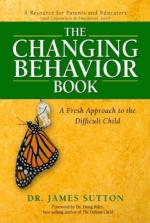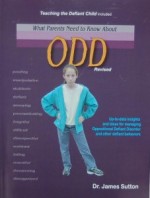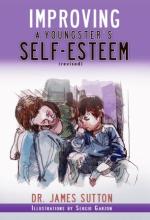Parental Alienation in Divorce: Don’t Shame or Blame the Kids! (Rosalind Sedacca, CDC)
The needs of children should be an important consideration, always. In this timely article, Rosalind Sedacca, founder of the Child-Centered Divorce Network, shares six valuable tips for effective co-parenting following divorce. Acting on them can make a lifetime of difference.
…………………….
 Divorce can take its toll on anyone, especially parents. Many parents feel justified in raging about their ex after the divorce and vent about the other parent with their children. However, the results can be devastating.
Divorce can take its toll on anyone, especially parents. Many parents feel justified in raging about their ex after the divorce and vent about the other parent with their children. However, the results can be devastating.
Sure, divorce conflicts between parents can get ugly. But too often we forget this effects not only the “targeted” parent, but also on your innocent children! This becomes a form of parental alienation, a serious and complex set of behaviors that are designed to win the favor of one parent against the other. Most often, that parent feels they can validate their behaviors and doesn’t see the harm in the alienation.
Of course, the biggest consequence is that the children get caught in the middle and are often confused by hurtful and disrespectful messages about their other parent. In time, children learn to manipulate both parents – pitting one against the other in ways that are destructive for the child’s socialization and sense of self-confidence.
This is dangerous territory with long-lasting consequences. How you handle the situation can affect your family for years to come and play a crucial role in the well-being of your children.
To help heal your relationship with your children should you be a targeted parent of alienation, here are some valuable strategies to consider:
 *Remember, your children are innocent. Don’t take your frustrations out on them by losing your tempter, acting aggressively, shaming or criticizing them.
*Remember, your children are innocent. Don’t take your frustrations out on them by losing your tempter, acting aggressively, shaming or criticizing them.
*Avoid impressing or “buying” the kids’ affection with over-the-top gifts and promises. Spoiled children create a lifetime of parenting problems for everyone down the road.
*Strive to maintain contact with the children in every possible way. Use all the newest technology tools available to talk, text, email, share videos, play online games, etc. Take the initiative whenever an opportunity presents itself.
*Don’t waste precious time with the children discussing or trying to change their negative attitudes toward you. Instead, create new enjoyable experiences and reminisce about past times together that were fun.
*Temping as it may be, refrain from accusing the children of being brainwashed by their other parent or just repeating what they were told. Even if this is true, chances are the children will adamantly deny it and come away feeling attacked by you.
*Don’t ever put down or disparage your ex in front of the kids. This only creates more alienation, along with confusion and further justification of your negative portrayal to the children. Be the parental role model they deserve and you will be giving them valuable lessons in integrity, responsibility and respect.
The effects of parental alienation will not be transformed overnight. But by following these suggestions you are moving in a healthy direction on behalf of your children and laying the foundation for keeping your relationship as positive as possible. And remember: never give up. As children grow and mature they understand more and often want to seek out their other parent to rekindle the relationship.###
Rosalind Sedacca, CDC is a Divorce & Parenting Coach, Founder of the Child-Centered Divorce Network and author of How Do I Tell the Kids about the Divorce? A Create-a-Storybook Guide to Preparing Your Children — with Love! For her free ebook on Post-Divorce Parenting: Success Strategies for Getting It Right!, her blog, coaching services and other valuable resources on child-centered divorce, go to: www.childcentereddivorce.com.
Divorced Parents: Made Mistakes You Regret? It’s Not Too Late to Make it Right! (Rosalind Sedacca, CDC)
Divorced parents can make mistakes they regret. Divorce & Parenting Coach, Rosalind Sedacca, offers insightful ways for making it right.
……………………..
 Divorce drives some people crazy. Because of that, they make many poor decisions. Their judgment, integrity and credibility are easy to question. Their decisions regarding taking responsibility for their children come under scrutiny.
Divorce drives some people crazy. Because of that, they make many poor decisions. Their judgment, integrity and credibility are easy to question. Their decisions regarding taking responsibility for their children come under scrutiny.
Learning From Mistakes
There is much we can all learn from these mistakes. And wisdom we can take away that is important for all of us to remember: It’s never too late to get it right – when your children are at stake!
In the heat of the divorce drama, we may have settled for a decision or two that we later regretted and still feel resentful about. Or we made a child-related agreement that, in hindsight, was not in our child’s best interest – but we don’t know quite how to remedy the situation.
Perhaps we lost our tempers at an inappropriate time and watched our children painfully internalize the experience.
Maybe we referred to our ex in a rather unflattering way only to find our child get very upset and storm away in anger.
Take Action
While some legal issues can only be handled through legal resolution, there are many post-divorce relationship decisions involving our children that we can remedy! And, of course, it’s never too late to make amends.
If you have found that your children are suffering or hurting due to a decision you made when you were more motivated by anger than by positive parenting and are now having regrets – take action.
That can mean having a heart-to-heart with your children and apologizing for behavior or statements you made that created pain in their lives. Take responsibility, own those choices, and humbly explain that you made an error and now want to make some changes.
 That may translate into letting them spend more time with their other parent … no longer bad-mouthing your ex in front of the kids … inviting your ex to a holiday or school event with the children … encouraging the kids to have a visit with their “other” grandparents … you get the idea.
That may translate into letting them spend more time with their other parent … no longer bad-mouthing your ex in front of the kids … inviting your ex to a holiday or school event with the children … encouraging the kids to have a visit with their “other” grandparents … you get the idea.
Perhaps it means a straight-talk conversation with your ex that opens the door to better, more cooperative communication, trust and co-parenting. Or it could mean apologizing for harsh words and insults.
Sometimes Difficult, But Worth It!
Yes, this can be amazingly difficult to do from an ego perspective. But when you think about how much joy it can mean to your children when they see both of their parents getting along – it’s more than worth the swallowing of your pride. Chances are your ex will swallow some too – and be receptive to working things out in a more mature manner.
If you have nothing to “own,” and all the tension and mistakes rest solely on the shoulders of your ex, try approaching them in a different way, focusing exclusively on the emotional needs of the children, and reaching out a hand in peace.
There’s no guarantee this will work – and we all know there are some certified jerks out there of both genders! But don’t give up – ever! Times change, people can change, and change may be just what your family needs so you can create a better outcome for your children.
When you take the “high” road and model responsible, effective behavior, you are giving your children the gift of learning how to do that themselves. It’s a gift that will pay off for you and them many times in the years ahead. One day your children will thank you for making things “right.” They’ll acknowledge you for being such a model Mom or Dad, despite the challenges you faced. And believe me, you will be proud of the parent you worked so hard to become.
It’s never too late to heed this advice and start taking constructive steps that move you in the right direction – to honor the children you love. And if you need a helping hand, reach out to a professional for that support and guidance. We’re here to help you make a positive difference for everyone in the family.###
Rosalind Sedacca, CDC is a Divorce & Parenting Coach, founder of the Child-Centered Divorce Network and author of the internationally-acclaimed ebook, How Do I Tell the Kids about the Divorce? A Create-a-Storybook Guide to Preparing Your Children — with Love! For her free ebook on Post-Divorce Parenting, coaching services and other valuable resources on divorce and parenting issues, go to: www.childcentereddivorce.com.
10th Annivesary of International Child-Centered Divorce Month (Guest: Rosalind Sedacca, CDC)
 It was a joy once again for me to visit with Rosalind about the important work of those advocating child-centered divorce. From an idea to a worldwide mission, Rosalind has steered a steady course over the years, and the positive impact has been noted in the lives of young people. But there’s plenty of work yet to do, so listen in as we bring you “10th Anniversary of International Child-Centered Divorce Month.” –JDS
It was a joy once again for me to visit with Rosalind about the important work of those advocating child-centered divorce. From an idea to a worldwide mission, Rosalind has steered a steady course over the years, and the positive impact has been noted in the lives of young people. But there’s plenty of work yet to do, so listen in as we bring you “10th Anniversary of International Child-Centered Divorce Month.” –JDS
…………………………….
International Child-Centered Divorce Month
January has been established as International Child-Centered Divorce Month. January of 2017 is the 10th anniversary of ICCDM and its outreach in helping parents, therapists, attorneys, educators, mediators and other divorce specialists focus on the needs of children and teens when divorce plans are being made.
Many free resources and gifts related to child-centered divorce are being offered during International Child-Centered Divorce Month. You won’t want to miss a single part of this excellent opportunity.
To help us understand more clearly the importance and methodology of child-centered divorce is our special guest, Rosalind Sedacca, Certified Divorce Coach and the Voice of Child-Centered Divorce. Rosalind will emphasize, using her own story, why the needs of children should be a priority in divorce, how best to explain divorce to one’s own children and why a child-centered, collaborative approach is so important.
Rosalind Sedacca
Rosalind is the author of an innovative storybook approach to communicating divorce to a child, an approach that informs while it supports and upholds a youngster’s identity, dignity and sense of value. Her diligence and effort resulted in a successful and highly acclaimed e-book entitled, How Do I Tell the Kids About the Divorce? A Create-a-Storybook Guide to Preparing Your Children –With Love.
Rosalind’s work with the Child-Centered Divorce Network, which she founded, has been acknowledged on five continents worldwide. In her speaking, writing, blogging and media appearances, Rosalind continues to share the message of child-centered divorce. The International Child-Centered Divorce Month is yet another way to showcase what is being done. The link below takes you to the website and a free e-book from Rosalind, Post Divorce Parenting: Success Strategies for Getting It Right. (29:09)
www.divorcedparentsupport.com/ebook
TO LISTEN, left-click the link. To access the file right-click and “Save Link as …” to save to your audio device), CLICK HERE FOR LINK
Co-Parenting with an Addict After Divorce: Developing the Right Mindset (Rosalind Sedacca, CDC)
Addiction and divorce can both cause confusion and conflict in the lives of children. Rosalind Sedacca has insights that can help. The Changing Behavior Network presents, “Co-Parenting with an Addict After Divorce: Developing the Right Mindset.”
…………….
 Getting divorced and exploring the realities of co-parenting ahead? Life after divorce can be enormously complex; it’s especially challenging for parents who are coping with addiction issues and their consequences.
Getting divorced and exploring the realities of co-parenting ahead? Life after divorce can be enormously complex; it’s especially challenging for parents who are coping with addiction issues and their consequences.
Cooperative co-parenting is always best for your children. It is easier for them to accept life after divorce when they have access, love and attention from both parents. Post-divorce co-parenting with an addict makes this process more complicated, especially if one parent is not fully dependable, trustworthy or responsible.
Common Parental Issues Following Divorce
Difficulties can be compounded by the many issues all parents face following a divorce:
• Both parents are bringing the raw emotions resulting from the divorce into a new stage in their lives.
• Mom and Dad are also bringing previous baggage from the marriage (ongoing conflicts, major disputes, differing styles of communication, unresolved issues and continual frustrations) into the mix as they negotiate a co-parenting plan.
• Both parents are vying for the respect and love of the children, They are easily tempted to slant their parenting decisions in the direction that wins them popularity with the kids.
• Anger and resentment resulting from the divorce settlement can impact and influence levels of cooperation in the months and years to come.
• Parents may disagree about major issues ahead that weren’t part of the parenting dynamic in the past: visits and sleepovers with friends, scheduling after-school activities, handling curfews, new behavior problems, consequences for smoking, drinking and drug use, dating parameters, using the car, and scheduling vacation time.
• Parents may not share values and visions for the children as they grow, and they may also not agree on the plan of action required to honor those values.
Challenges
When challenges appear, parents might find themselves struggling to find ways of coping. Agreement on how to co-parent effectively in the present and the future is not a one-time discussion. It takes on-going communication, both verbal and written, as well as regular connections via phone, email or in person. It also takes a commitment to make co-parenting work because you both want it to.
The consequences, when it doesn’t work, can be considerable. Your children are very likely to exploit any lack of parental agreement or unity, pitting Mom and Dad against one another while they eagerly take advantage of the situation. This is a danger sign that can result in major family turmoil fueled by behavior problems that neither parent is prepared to handle.
Addiction: Another Layer of Confusion
Addiction problems bring another layer of confusion. The addicted parent may not be granted shared custody and may have limited visitation. I encourage these parents to take advantage of video chats, emails, texting and other options today’s technology offers to support close parent-child connection.
It is essential that both parents always keep their promises and show up on time. Disappointments deeply hurt children. They will lose their trust and respect for a parent, which is hard to earn back. Don’t make agreements you can’t live up to. And never show up intoxicated or unprepared to parent, but be fully focused on your children and their needs.
When Mom and Dad are on the same page, they can parent as a team regardless of how far apart they live. These parents agree about behavioral rules, consequences, schedules and shared intentions regarding their children. They discuss areas of disagreement and find solutions they can both live with, or agree to disagree and not make those differences an area of contention.
If meals with Mom are vastly different than food offerings during time with Dad, that can still work if both parents respect the differences and let the children know it’s all okay. When differences become an area of high conflict, that’s when the kids can get hurt, being caught between battling parental egos. Children are confused and often feel guilty in battling parent situations, which rarely leads to any good within the post-divorce family structure.
 When to Consider Professional Support
When to Consider Professional Support
Get professional support to guide you if you’re uncomfortable when the kids are with your co-parent. Discuss your options objectively. Sometimes we’re so caught up in past situations we can’t create workable solutions for co-parenting success without the assistance of a divorce mediator, therapist or mentor experienced with addiction and its challenges.
Keep in mind that when you’re more open and receptive to your co-parent, you are more likely to get what you really want in the end. Good listening skills, flexibility and the commitment to do what’s best on behalf of your children are part of a smart co-parenting mindset. Remember that co-parenting will be a life-long process for the two of you. Why not do it in a way that will garner your children’s respect and appreciation? They will thank you when they are grown adults. ###
 Rosalind Sedacca, CDC is a Divorce & Parenting Coach/Mentor and Founder of the Child-Centered Divorce Network. She’s author of How Do I Tell the Kids about the Divorce? and co-host of The Divorce View Talk Show and podcast. For her free ebook on Post-Divorce Parenting: Success Strategies for Getting It Right, her mentoring services and other valuable resources on mastering child-centered divorce, go to: www.childcentereddivorce.com.
Rosalind Sedacca, CDC is a Divorce & Parenting Coach/Mentor and Founder of the Child-Centered Divorce Network. She’s author of How Do I Tell the Kids about the Divorce? and co-host of The Divorce View Talk Show and podcast. For her free ebook on Post-Divorce Parenting: Success Strategies for Getting It Right, her mentoring services and other valuable resources on mastering child-centered divorce, go to: www.childcentereddivorce.com.
Back to School After Divorce: Tips to Help Your Kids! (Rosalind Sedacca, CDC)
 Returning to school after a summer break marked by the divorce of the parents would be a challenge for any youngster. Rosalind Sedacca, founder of the Child-Centered Divorce Network, offers some great tips to help these kids make the best of the support available at school. We present, “Back to School After Divorce: Tips to Help Your Kids!”
Returning to school after a summer break marked by the divorce of the parents would be a challenge for any youngster. Rosalind Sedacca, founder of the Child-Centered Divorce Network, offers some great tips to help these kids make the best of the support available at school. We present, “Back to School After Divorce: Tips to Help Your Kids!”
………………………
 Many divorces take place during the summer. This timing can help families adapt to the changes ahead. But it also makes returning to school a challenge for most children. Fortunately, there are ways to ease the transition by tapping into the many resources available through the school. That’s why it’s wise to develop a cooperative relationship with key school personnel.
Many divorces take place during the summer. This timing can help families adapt to the changes ahead. But it also makes returning to school a challenge for most children. Fortunately, there are ways to ease the transition by tapping into the many resources available through the school. That’s why it’s wise to develop a cooperative relationship with key school personnel.
Communicate with the School
Start by informing your child’s teachers about the divorce and any changes in your home environment. The more aware they are, the better prepared they can be to help your child. After all, school is often a second home for children – and that may be very comforting during this time of transition.
We can’t expect children to not be affected by the divorce. So expect raw emotions to come to the surface, including fear, shame, guilt and many forms of insecurity. Be aware that these complex feelings are likely to affect a child’s focus and self-esteem, as well as relationships with their friends – not to mention the impact on their academic performance.
Take advantage of the fact that most children trust and feel safe with their teachers. So schedule a conversation with them before the school year starts. Discuss the status of your post-divorce arrangements. Having the teacher as an ally can help your child feel more secure and less alone.
 Utilize the School’s Resources
Utilize the School’s Resources
The following suggestions can guide parents in using school system resources to your child’s advantage:
Teachers can look for signs of distress or depression in your child. Being compassionate by nature, teachers can talk with your child about their feelings. They can let your child know they are not the blame. Nor are they the only kids at school going through these difficulties. Messages like this can reinforce prior conversations you’ve already had with your child. It also reassures them to know that the divorce is not a big dark secret. It can be discussed candidly without shame.
Talk with your child’s guidance counselor. These professionals are a valuable resource; they are trained to handle challenging circumstances. They can be an ally to you and your children, and they can be counted on for support and guidance.
Look at these educators as members of your child’s support team. They have the background to detect signs of depression, aggression or other behavior changes that need to be addressed with you as soon as possible. So ask them to be attentive toward your child.
Be sure to take advantage of divorce support groups at school. These groups are designed to encourage children to talk with one another, sharing their feelings during or after the divorce. It’s helpful to know they’re not alone, that they’re accepted, and that others are facing or have experienced similar life-altering circumstances. That awareness gives children a sense of belonging. Many children make new friends with others who are sharing their experiences. The less alone a child feels, the easier it is to accept the challenges they will be facing in the weeks and months to come.
Of course, schools cannot replace parental responsibilities. It’s essential to talk to your child before they return to school. Prepare them for changes in routine or scheduling they might encounter. Inform them about those they can talk to at school if they are feeling sad or have questions about adjusting to new situations.
Let school be your child’s best friend at this time. It can be a great support system for your family if you take advantage of the experience and useful resources available. ###
 Rosalind Sedacca, CDC is a Divorce & Parenting Coach, founder of the Child-Centered Divorce Network and author of How Do I Tell the Kids about the Divorce? A Create-a-Storybook Guide to Preparing Your Children — with Love! For Rosalind’s free ebook on Post-Divorce Parenting, coaching services, articles and other valuable resources on divorce and parenting issues, go to: www.childcentereddivorce.com.
Rosalind Sedacca, CDC is a Divorce & Parenting Coach, founder of the Child-Centered Divorce Network and author of How Do I Tell the Kids about the Divorce? A Create-a-Storybook Guide to Preparing Your Children — with Love! For Rosalind’s free ebook on Post-Divorce Parenting, coaching services, articles and other valuable resources on divorce and parenting issues, go to: www.childcentereddivorce.com.
Rebuilding Parental Self Esteem After Divorce Takes Its Toll (Rosalind Sedacca)
 We all know divorce can be devastating on many levels. But sometimes we forget the emotional toll of divorce. In addition to the physical and financial stress on both partners, divorce can also wreak havoc on one’s self-esteem. Even those who initiate the divorce process can experience tremendous emotional turmoil resulting in guilt, anxiety and insecurity. Those who were not expecting or in any way desiring the break-up can come away feeling psychologically battered, confused and questioning their own worth. A focus on rebuilding parental self-esteem is worth the effort.
We all know divorce can be devastating on many levels. But sometimes we forget the emotional toll of divorce. In addition to the physical and financial stress on both partners, divorce can also wreak havoc on one’s self-esteem. Even those who initiate the divorce process can experience tremendous emotional turmoil resulting in guilt, anxiety and insecurity. Those who were not expecting or in any way desiring the break-up can come away feeling psychologically battered, confused and questioning their own worth. A focus on rebuilding parental self-esteem is worth the effort.
It’s hard to tackle these burdens alone. A support group, private coach, professional counselor or other similar resources will be very valuable in reminding parents that 1) you are not alone in your experiences or feelings and 2) there is a brighter future ahead for you – if you take proactive steps in that direction.
While family and friends are usually very well-intentioned, their support may not always be valuable for you. They have their own agendas, perspectives and values about marriage, family and divorce. What parents most need at this difficult time is a support system that is dispassionate, compassionate and knowledgeable about responsible behaviors that will move you into a more positive chapter in your life.
Here are a few suggestions to guide parents in boosting their self-esteem during the divorce and its aftermath.
 Be Committed to Releasing the Past
Be Committed to Releasing the Past
If you stay stuck in reliving and clinging to what no longer is your reality, you will not open the door to the next chapter in your life. There will be better, brighter days ahead – if you allow that awareness into your experience. Make space in your life for new friends, relationships, career options and fulfilling activities. Look for and expect new opportunities in new places. See the future as a positive beginning for you and your children. You’ll be pleasantly surprised about what you can create when you anticipate good things ahead.
Choose Your Company Wisely
We can’t easily change other people, but we can change the people we associate with. If your social group isn’t supportive of you, or tends to wallow in self-pity, realize you have a choice in your life about who you spend time with. Choose instead aware, introspective people who accept responsibility for their own behavior and proactively move ahead in transforming their lives. Move out of the blame game and put yourself in the company of positive people with high self-esteem who can appreciate you, with all your assets and baggage, as the wonderful person you are. You may find these people where you least expect them. So step out of your comfort zone – and be receptive to new friends and new experiences.
Be Flexible about Change
Life is always filled with changes, not just during divorce. Get comfortable with the unknowns ahead and accept that change is inevitable. While dark periods are tough to handle, realize they too will fall away and be replaced with better days and new relationships. Listen to your self-talk. Let go of limiting beliefs about yourself. When you catch yourself in doubt, fear or put-down language, become aware of that message and consciously refute it:
I am a worthy parent.
I can attract a new loving partner.
I deserve to be happy in my relationships.
My children love me and know how much I love them.
Determine what you want to change about yourself from within and relax about controlling circumstances around you. When you come to accept the reality of changes in your life, you’ll feel more at peace with yourself and those around you.
Life is about choices and decisions. Use your divorce as a catalyst for positive change. Choose to be the person and parent you most want to be. Then watch how circumstances around you settle into place more harmoniously than you ever expected.###
Rosalind Sedacca, CDC is a Divorce & Parenting Coach, Founder of the Child-Centered Divorce Network and author of How Do I Tell the Kids about the Divorce? For her free ebook on Post-Divorce Parenting: Success Strategies for Getting It Right!, coaching services, and other valuable resources on divorce and parenting issues, go to: www.childcentereddivorce.com.

 This blog, It’s About Them, was founded in 2006 by child and adolescent psychologist, Dr. James Sutton. Content will vary, but the message here promotes courage, kindness, vision and the powers of the human spirit in ourselves and our children. Dr. Sutton can be reached at
This blog, It’s About Them, was founded in 2006 by child and adolescent psychologist, Dr. James Sutton. Content will vary, but the message here promotes courage, kindness, vision and the powers of the human spirit in ourselves and our children. Dr. Sutton can be reached at 








